Table of Contents
Toggle
What Happens in a Head-on Collision?
When drivers face a head-on collision, they typically swerve to their right at the last moment. Each vehicle usually hits the driver’s side headlight causing deadly or severe injuries. This accident scenario is the most common and most dangerous of all front end collisions. It’s called a “narrow frontal-offset impact”.
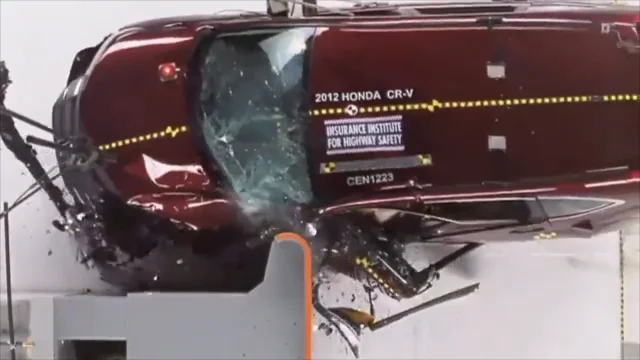
IIHS NARROW FRONTAL OFFSET CRASH TEST OF 2012 HONDA CR-V
Most Vehicles Don’t Protect Occupants In A Narrow Offset Front End Collision
Very few vehicles provide adequate protection in an offset head-on collision. That’s because, in the United States, there is no requirement for a manufacturer to conduct a crash test into an offset barrier. Instead, the vehicles crash into stationary obstacles in which the full end of the car hits the barrier. This crash test does not resemble most head-on wrecks in the real world.
The “narrow frontal-offset” occurs when the collision impacts 25 percent or less of the vehicle’s front end structure. The crash happens at the headlight on the driver’s side.
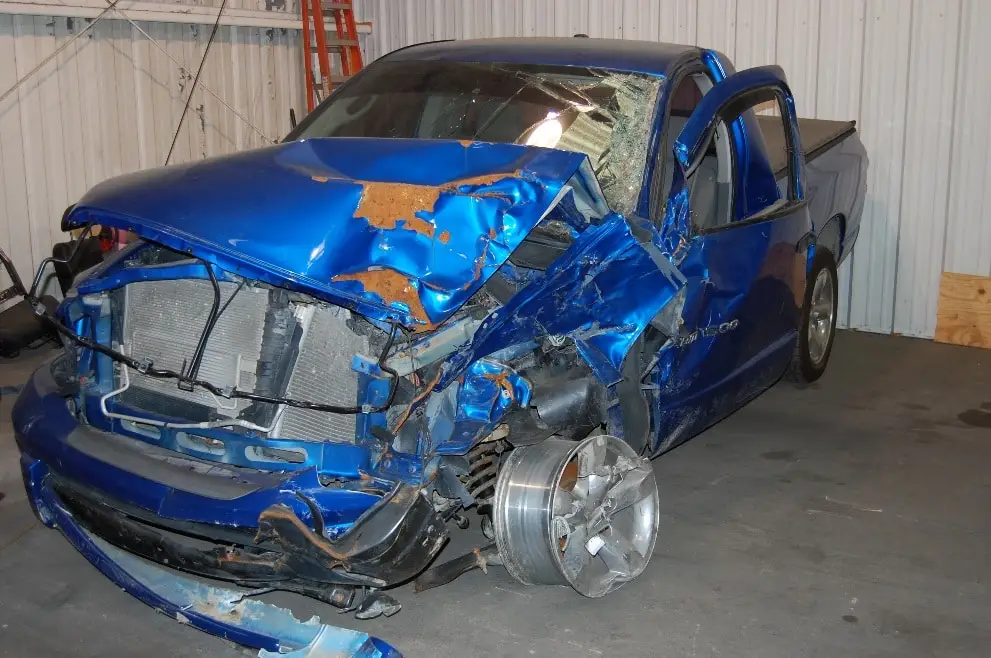
There is no bumper or structural protection in the wheel well. It rips apart the driver’s side. It violates crashworthiness requirements to maintain survival space and controlling energy.
The safety systems don’t work. The airbags do not deploy or inflate in the wrong position. That’s because automakers design vehicles to engage at least forty-percent of the front end structure. In other words, they design the front end to pass the unrealistic stationary barrier crash test.
Vehicle manufacturers need to crash test vehicles in more real-world like conditions.
In the video below, Todd Tracy explains how the narrow frontal-offset collision causes death and catastrophic injuries.
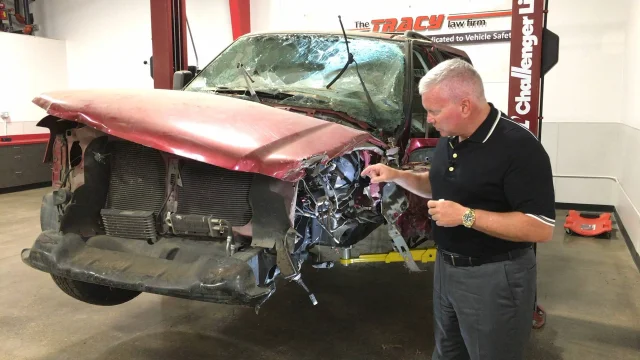
Vehicle Safety Lawyer Todd Tracy Explains How A Narrow Frontal-Offset Is A Safety Defect
Did You Suffer A Crushed Foot Or Mangled Broken Leg In A Head-On Collision?
The second most debilitating injury in the world affects the lower legs. The driver suffers mangled legs in a narrow offset collision because the accident destroys the survival space in the vehicle’s floor pan.
When automakers started to crash test for narrow offset frontal collisions the discovered that the legs on the anthropomorphic crash test dummies were destroyed. But the industry did nothing because there were no standards.
If you or a family member suffered a lower leg injury because the collision destroyed the survival space, please contact the Tracy Law Firm.
In the following video, Todd describes the injuries and what you can do to seek damages.
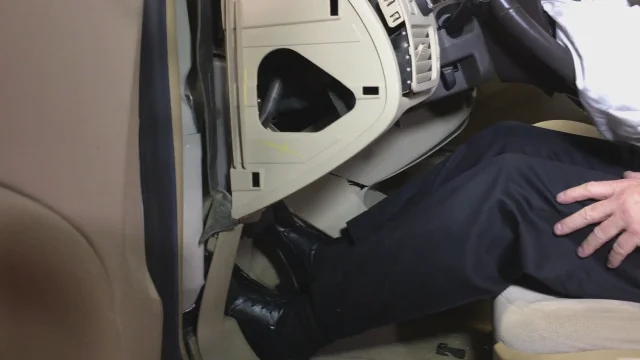
Did You Suffer A Crushed Foot Or Mangled Leg In A Front-end Collision? Watch This Video To Learn How To Sue For Damages.
If An Accident Caused Death Or Catastrophic Injuries, Todd Tracy Will Conduct A Free Analysis For Your Case.
Safety advocates identified front structure weakness as bad back in the 1920s and 1930s.
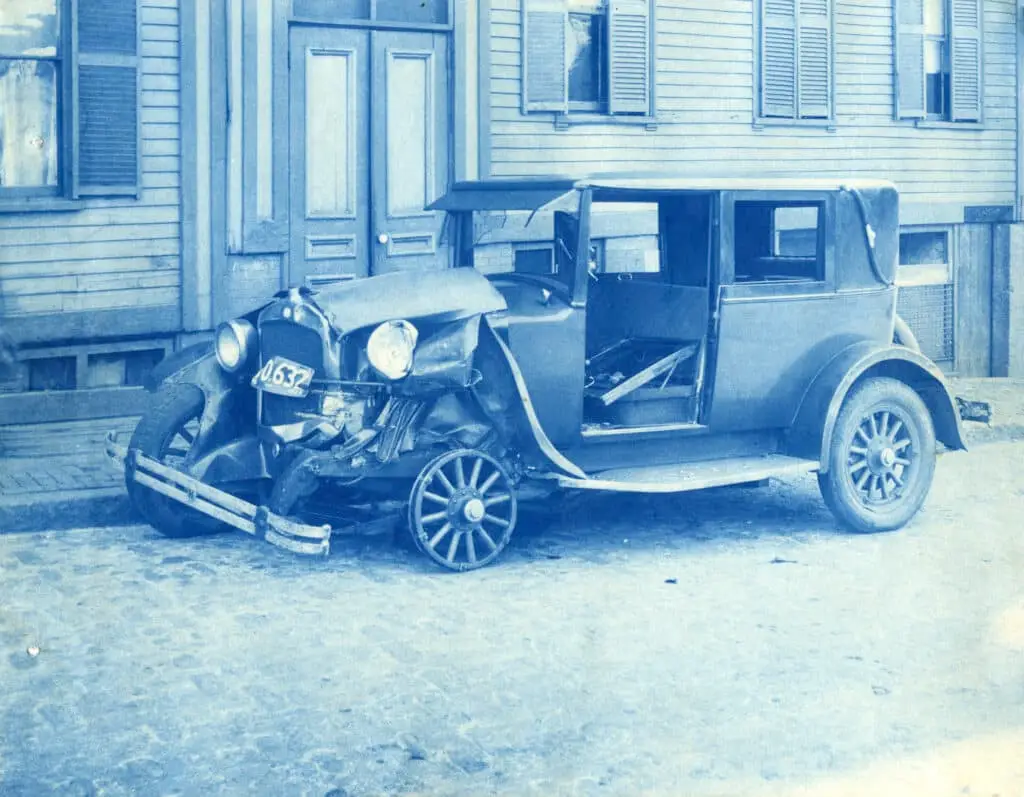

Front End Crash Test Conducted in the Late 1920s
The video below demonstrates one of those designs.
A few years later, the manufacturers began to incorporate new designs that addressed the problem literally.
In the decades since that time, manufacturers relaxed their internal standards, probably for profits. By the 1960s, accident fatalities were skyrocketing. Public outrage and the onset of product liability lawsuits encouraged the government to adopt minimum safety standards to which the manufacturers would be accountable.
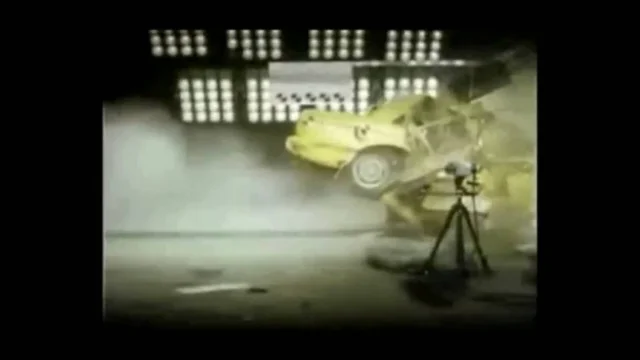
The following video demonstrates post FMVSS vehicles that perform no better in many regards as the vehicles produced in the 1930s.
This video includes exhibits from a recent trial in which Todd Tracy won a jury award for his client whose legs were crushed by the intrusion into the front tire footwell. The carmaker appealed the jury verdict. The 5th Circuit Court of Appeals upheld the original verdict in favor of my client.
Some vehicle manufacturers have led the charge for safer vehicles.
In this video demonstration, you will see how an early 1980’s vintage Volvo performs when driven off a cliff.

The crash test videos below underscore the amazing crashworthiness design of Mercedes Benz’s Smart Car.
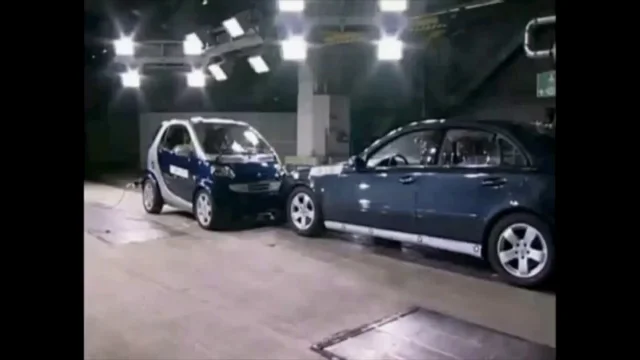
Smart Car vs. Mercedes Sedan
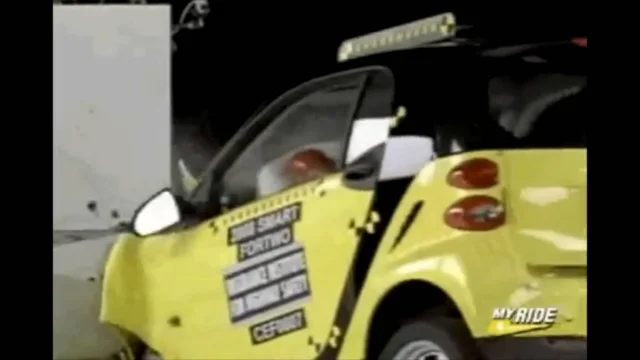
Who would think that a vehicle with 26 inches of frontal structure could survive impacts such as these without compromising the occupant compartment?
In short, in the United States and much of the world, most collisions strike the front end of the vehicle. Thus, the front end structure and the way that a vehicle channels destructive forces around the passenger compartment is of paramount importance to safety.
We see injuries from steering wheel intrusion, occupants hitting A-pillars on the roof when the A-pillars are crushed far into the occupant space. As demonstrated in a previous video, footwell intrusion maims and cripples front seat occupants.


